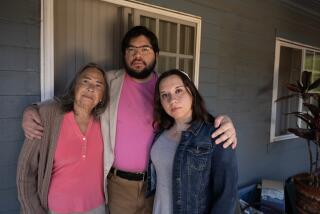ORANGE : Council Avoids Stand in Street Fair Flap
The battle to block the use of scrip at the 1992 Orange International Street Fair stalled Tuesday night when the City Council failed to comment on the controversy despite a heated public hearing.
The decision by street fair officials to use paper tickets in lieu of cash at this year’s Labor Day weekend event has divided vendors and organizers of the fair, a celebration that attracted about 300,000 visitors last year.
Some vendors staged a demonstration Sunday to protest the use of scrip and took their complaints to the City Council on Tuesday night, hoping that the panel would overturn the decision of street fair board.
During the emotional 1 1/2-hour hearing:
* Street fair board member Hank Mascolo resigned, saying the board was “out of control.”
* Jack Ferraro, president of the Orange Sister City organization resigned from that post, citing criticism he had received for opposing scrip.
* And Danny Gonzalez, a representative of the fair’s Mexican Street, said all nonprofit organizations from the street would pull out if scrip were allowed.
The City Council appoints four of the street fair’s nine board members and city staff makes up most of a blue ribbon advisory committee for the event.
Despite such intimate connections to the city, City Atty. Robert O. Franks stressed that the Orange International Street Fair is an independent, nonprofit corporation and advised that “the use of scrip is a decision for the street fair board.”
Dozens of vendors who work at the fair as fund-raisers for their nonprofit groups have said they will boycott the the event this year if scrip is used. The complications of exchanging and using scrip will discourage fair-goers from spending as they normally would and will jeopardize the fair as a money-raising venture, vendors said.
“If someone wants to buy a cookie and doesn’t have scrip they’re not going to stand in line on a hot day to get it,” said Joey Baltazar, a spokesman for Citizens Against Scrip.
But street fair board president Al Ricci insisted that scrip is necessary to track the income generated by the event and make the fair more accountable to sponsors, insurance providers and city residents.
“Give scrip a chance,” Ricci said. “It’ll work.”
Scrip opponents submitted a petition listing more than 1,200 signatures of residents who object to its use. Other vendors complained that the cost to participate in the fair had become prohibitive.
But the council would not rule or comment on the controversy.
“We have provided the open door meeting that some people wanted,” Councilwoman Joanne Coontz said. “But the bottom line is that the control of this is with the (street fair) board.”
Pamela Lee, secretary of the fair’s All American Street, where 17 of 32 participants have pulled out, said by not commenting, the council had side-stepped the issue.
“They can tell you all day long that (the fair) isn’t their responsibility but it’s on city property,” Lee said.
“I think we’re all real disappointed, but I don’t think we’re through,” she added.
The street fair has a history of infighting, resignations and controversy. In 1989, the Orange County Democratic Party took the fair to court when the party was prohibited from distributing political flyers at the event. In 1990, a decision requiring fair visitors to purchase bracelets to buy alcohol created an uproar.
More to Read
Sign up for Essential California
The most important California stories and recommendations in your inbox every morning.
You may occasionally receive promotional content from the Los Angeles Times.










